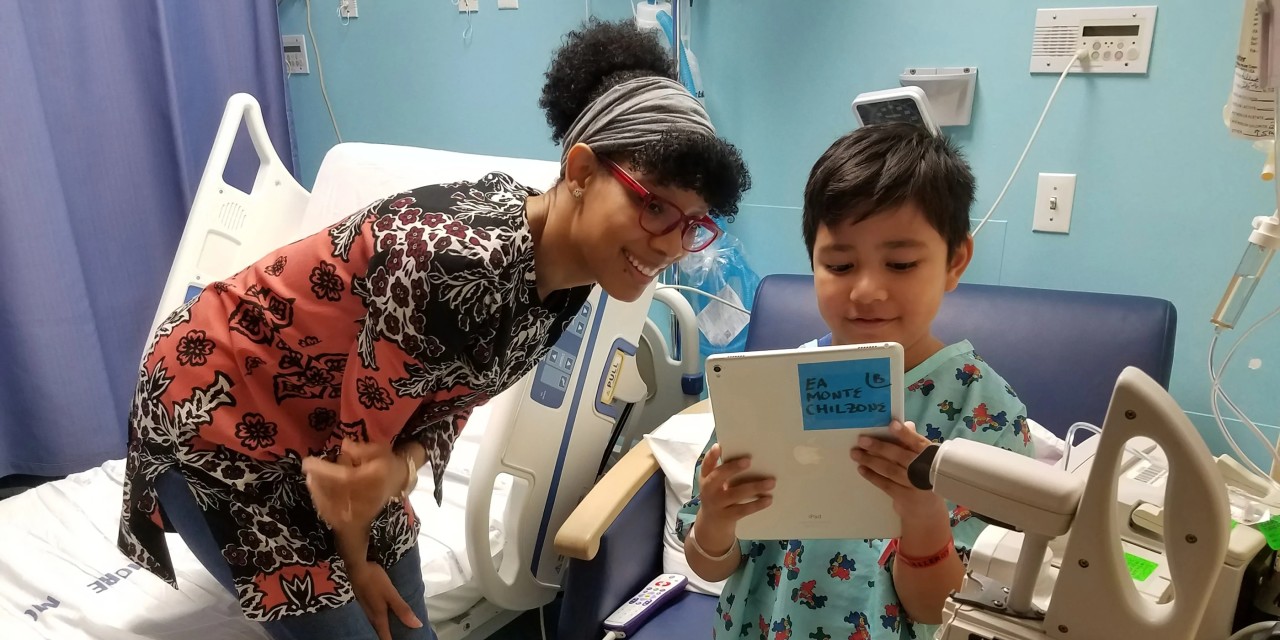The CUNY Graduate Center’s Seminar on Public Engagement and Collaborative Research has helped foster a robust public humanities infrastructure across CUNY’s 25 campuses. The seminar leverages CUNY’s long-standing role as an incubator for activist scholarship, its diverse student body, and its reach into communities to support public humanities programming committed to social justice.
Created with funding from the Andrew W. Mellon Foundation in 2015, the seminar began as a two-year initiative in the CUNY Graduate Center’s Center for the Humanities that aimed to inspire community engaged research through the production of creative and activist works. Now in its third cycle since its original Mellon grant, the seminar has supported the creation of engaged courses, stipends for community partners, a public humanities press, grants for working groups, professional development workshops, paid internships and research assistantships, and independent studies for undergraduate and graduate students to pursue public humanities projects. When applying to join the seminar, graduate students can apply to be public humanities teaching fellows, digital publics fellows, or a provost’s fellow in the public humanities, with each position aiming to support students to integrate public engagement with their ongoing humanities training.
The program is built around cohorts of roughly forty faculty, graduate students, and community partners who gather regularly to share skills and hard resources, collaborate on overlapping projects, create a shared vocabulary, and discuss relevant ideas like community accountability, reciprocity, compensation structures, and what it means to be an activist scholar. The seminar offers funding, course releases for faculty, staff support and space for events, and media outreach to promote public engagement.
The seminar brings together participants from across the university, including graduate students, adjunct lecturers, early tenure track faculty, and senior faculty, with each participant showing up as subject experts in their own right. Importantly, community members from partner organizations also fully participate in the seminar. This nonhierarchical relationship to knowledge production fosters a shared learning environment that reflects the social justice and access-oriented aims of the funded projects. A democratic commitment extends even to monetary concerns; members of each cohort are charged with making decisions collectively on how to allocate funds to support projects. With a nod to the words of Shari Davis, a pioneer of participatory budgeting practices, seminar director Kendra Sullivan hopes that this shared knowledge production and agency “opens the doors to public, higher education so wide that you can't help but walk through them. And I want to be sure that once people do walk through, we're there to help prepare folks to be more efficaciously, energetically, and ethically engaged in public knowledge practices and democratic decision-making, from how resources are distributed, to the role of cultural production in greater social flourishing, to the ways we plan for climate mitigation."
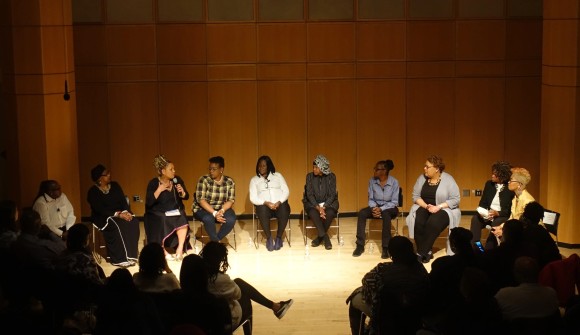
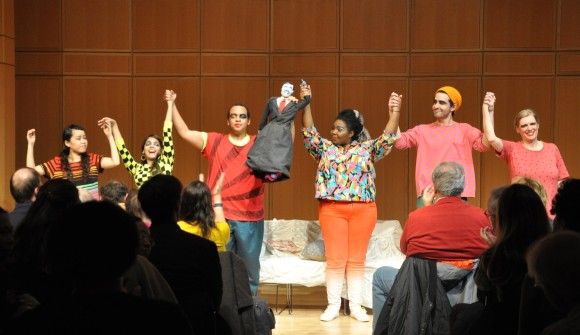
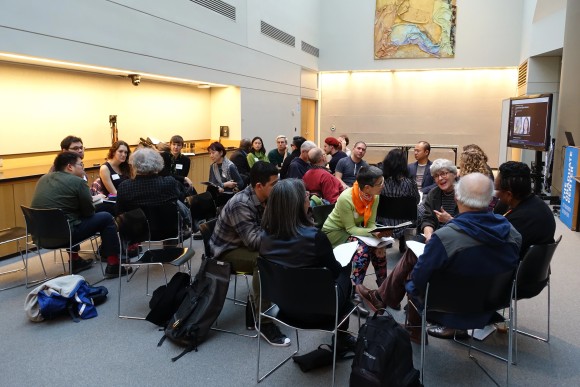
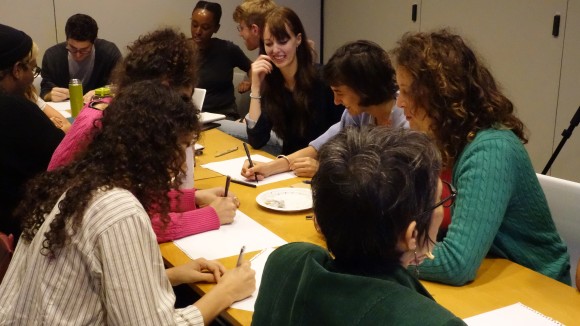
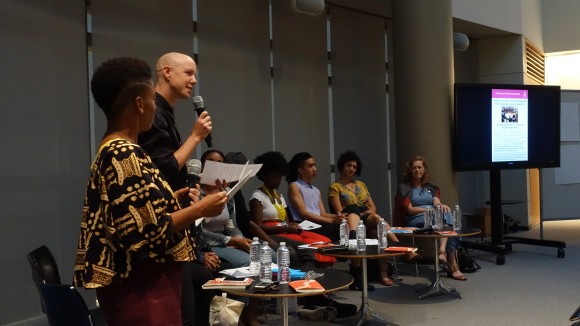
Importantly, the seminar does not treat these social issues as only happening outside the university, instead seeing the potential for public humanities work to address issues of access and equity within the CUNY system itself. “What we really want to do is use the architecture of CUNY to work with, learn from, and contribute to the efforts of key allies on the outside,” Sullivan notes. While acknowledging that many of the problems facing CUNY are endemic to higher education as a whole, Sullivan hopes that through the seminar “We can work together to push the pendulum in the right direction of a more just, more equitable, more democratically engaged, and more abundant university.” Sullivan sees the impacts of the seminar rippling outward, as fellows trained in the seminar space go on to lead creative and activist projects, obtain substantial grants to support public work, get good jobs in academic and extra-academic fields, and teach undergraduate classes across the CUNY system.
The seminar has supported many publicly engaged projects, many of which are featured in the Humanities for All database, including the following examples.
The City Amplified: Oral Histories and Radical Archives Project
Participation in the seminar enabled Bronx Community College Associate Professor of History Prithi Kanakamedala to undertake The City Amplified research project, a public humanities project that brings together oral history practitioners, artists, archivists, and scholars to examine how archiving practices based on reciprocity and accessibility can amplify the rich range of oral history and place-based research projects occurring across New York City. The working group includes local organizations such as The Laundromat Project, South Asian American Digital Archive, the Bronx Music Heritage Center, and City Lore to launch a series of city-wide public events around archiving and public history practices. As a public historian, Kanakamedala notes how invaluable it was to have the seminar’s support. “It was really important to me that we open up the public humanities to CUNY community college students who are often left out of opportunities, and the Center provided the capability to offer paid internships. They understand that amplifying the interdisciplinary work that CUNY faculty and our city's cultural organizations are already doing, and providing the resources for us to deepen our connections and relationships on- and off-campus is community building and public humanities at its best.”
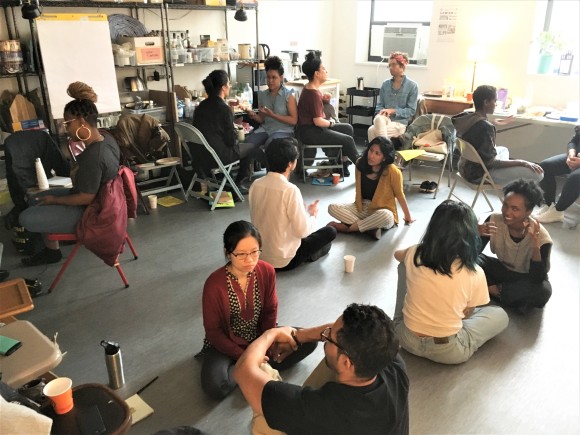
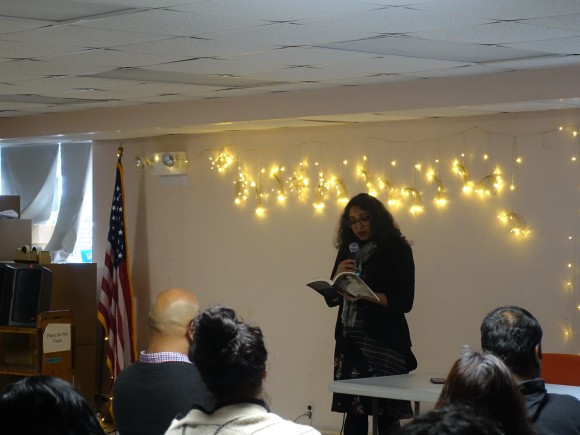
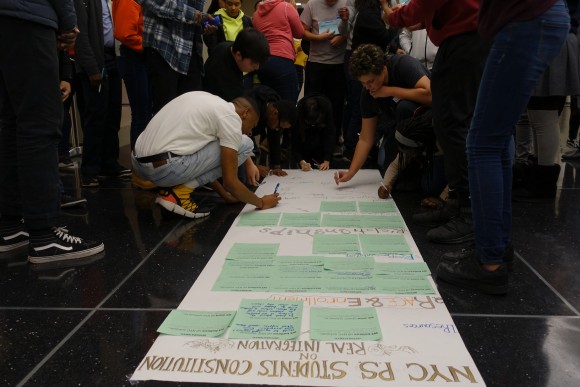
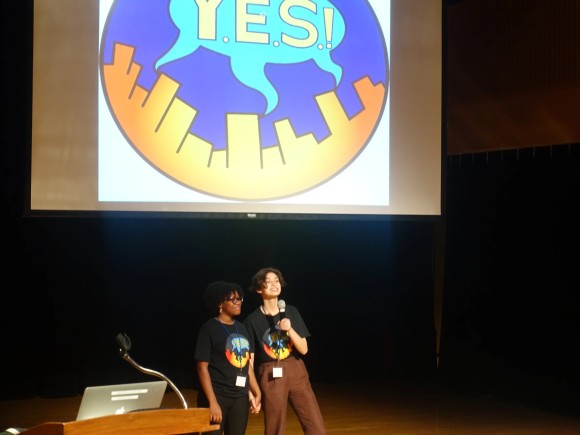
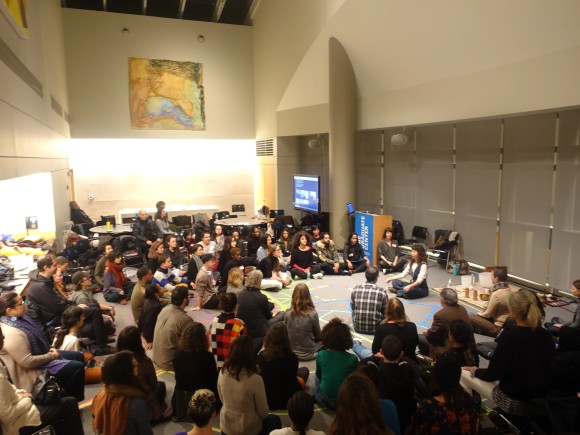
"The Impact of Listening and Being Heard: Oral History, Archives, & Advocacy"
CUNY English Phd and former Digital Publics Fellow Jaime Shearn Coan used the seminar to create a range of public programming and publicly engaged classes based on his scholarly interests in HIV/AIDS and dance. Initially entering the space as a member of the seminar-funded Mediating the Archives research team, Coan created “Writing About Performance,” an undergraduate course in partnership with CUNY Dance Initiative (CDI). This work also led to the development of programming with the Brooklyn performance space JACK and a publication around the theme of reparations and solidarity economies. As a Digital Publics Fellow he created "Metamorphosis Theater: An Oral History Project on the Performance Work of Assotto Saint," a digital archive inspired by his participation in the City Amplified and VHS Archives working groups supported by the seminar. Coan, who is now a Mellon/ACLS Publics Fellow at ONE Archives Foundation speaks to how the seminar prepared him for a career in the public humanities. “Over the course of my time with the seminar, I was able to try on many roles in my position: editor, facilitator, event planner, digital creator, content producer. My scholarship became more capacious as a result, as I attempted to widen the frame of what research looks and feels like. The digital archive that I produced alongside my dissertation reflects my commitment to extending my research into the public sphere, so that it may seed many projects in the future.”
March 2021
